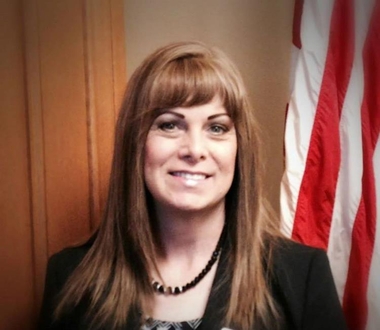Same-sex marriage ruling raises issues for Kansas, Missouri

Topeka, Kan. (AP) — Kansas and Missouri legislators face debates next year over religious objections proposals and expanding their state's anti-discrimination laws to protect gays and lesbians, following the U.S. Supreme Court's decision legalizing same-sex marriage throughout the nation.
The high court ruling immediately led social conservatives, including Republican Gov. Sam Brownback of Kansas, to warn that the religious liberties of gay marriage opponents are at risk. Supporters of the ruling, including Missouri's Democratic governor, Jay Nixon, pointed out just as quickly that although gays and lesbians can marry, they aren't legally protected from losing their jobs or housing due to their sexual orientation.
"Let's talk about religious liberties and non-discrimination in one setting," said Sandra Meade, chairwoman of Equality Kansas, her state's leading gay-rights group. "It's absolutely a discussion worth having."
Both states outlawed same-sex marriage and reinforced their bans through amendments to their state constitutions that had overwhelming voter support. Their anti-discrimination laws don't cover sexual orientation or gender identity.
Both states have Republican-controlled legislatures with members who want to pursue religious objections measures. But both also have lawmakers and advocates who want to expand anti-discrimination laws to protect gays and lesbians.
In Kansas, Brownback issued an executive order last week directing state agencies not to punish clergy, churches and religious groups for refusing to perform same-sex weddings or provide goods, services, or accommodations for them. The order covers religious organizations that contract with government agencies to provide public services but not private businesses.
Brownback has told reporters he might propose a new religious objections law, and he said last week during a podcast for the conservative Family Research Council that lawmakers need to at least have extensive hearings next year to "flesh out" such issues. Kansas Senate Judiciary Chairman Jeff King, an Independence Republican, said such a landmark court ruling should prompt a review of state laws.
Missouri opponents of same-sex marriage are also raising the issue.
"Absolutely, we will be talking to lawmakers about providing religious liberties protections," said Don Hinkle, public policy director for the 600,000-member Missouri Baptist Convention.
Besides protections for religious liberties offered by the U.S. and state constitutions, both Kansas and Missouri have "religious freedom" laws declaring that state and local agencies can't substantially limit a person's right to act in accordance with his or her religious beliefs unless there is a compelling reason to do so.
Nationally, gay rights supporters are watching states' religious objections debates closely. Arkansas and Indiana enacted such laws this year but quickly scaled them back because of a national backlash, including from big business.
Sarah Warbelow, legal director for the Washington-based Human Rights Campaign, said concerns about religious liberties are a "red herring" designed to obscure a desire to continue unfair treatment of gays, lesbians, bisexuals and the transgendered.
"We've kind of wallpapered over it in our modern times, but many people at earlier points in American history believed that it was immoral for people of different races to intermix, and we're not just talking about marriage," she said. "Those were real beliefs."
Nixon raised the issue of expanding Missouri's non-discrimination laws to cover LGBT residents as he signed an executive order directing state agencies to "immediately take all necessary measures" to comply with the U.S. Supreme Court's same-sex marriage ruling.
Such a measure cleared committee this year in the Missouri Senate but wasn't debated by the full chamber. A bill to expand Kansas' anti-discrimination laws was introduced in the state House this year but didn't get a hearing.
Same-sex marriage opponents in both states are wary of such proposals. They cite an Oregon case in which the state's labor bureau this month ordered a bakery's owner to pay $135,000 in damages to a lesbian couple after refusing to provide them with a cake. A 2007 Oregon law barring anti-LGBT bias has an exemption for religious groups, but the state agency said it does not allow businesses to discriminate.
Tyler McClay, general counsel for the Missouri Catholic Conference, said the church doesn't want discrimination to deny gays and lesbians food, shelter and employment, but it also can't "just abandon our flock" when members want to live out their faith in their daily lives.
"These are the kinds of things we're going to have to struggle with," he said.
By John Hanna, AP Political Writer. Copyright 2015 The Associated Press. All rights reserved. This material may not be published, broadcast, rewritten or redistributed.
The Gayly – July 11, 2015 @ 1pm.





